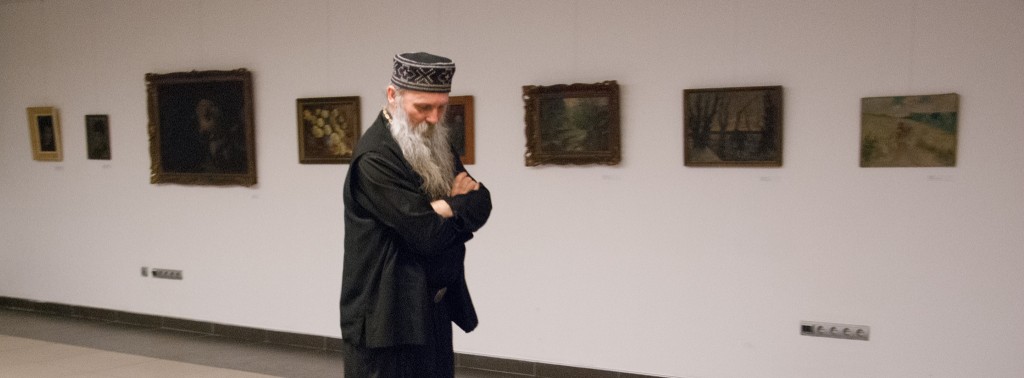Historiography of Holocaust in Yugoslavia
His Excellency Bishop Jovan (Ćulibrk) of Slavonia held a lecture on ‘Historiography of Holocaust in Yugoslavia’ within the seven-day manifestation ‘Freezing Silence Speaks’ organised by the Cultural Centre of Novi Sad.
Introduction was given by the director of Cultural Centre of Novi Sad, Dr Andrej Fajgelj, who said that this institution organises commemoration of Novi Sad Raid for the second time, and that apart from cultural, in this period it also becomes documentation and educational centre.
– This year we expanded commemoration of Novi Sad Raid, so the focus was not just on Novi Sad. We tried to commemorate victims that had suffered on the entire territory of Bačka, but also Europe. It is good to compare the Raid and genocide that Serbs survived during the World War II with the Holocaust that Jewish people had to endure – said Fajgelj.
In his lecture, His Excellence Bishop Jovan of Slavonia grouped the creation of historical sources in several periods: period after the end of war until 1948, period that ends with Tito’s death and period that ended with breakup of Yugoslavia. He explained that much was known about the Holocaust in Yugoslavia, but in a specific way – the Holocaust was not a taboo and it had a taboo approach. Namely, although the Holocaust was a topic in various art forms and media places (film, novel, television, radio) it was not systematically and professionally researched. His Excellency said that he wrote his Master thesis on this topic because global and scientific community lacked insight in what was written about the Holocaust on the territory of ex-Yugoslavia.
– We can say that our science is within the borders of a developed science on the Holocaust and it contributes to the cause in an important way. It returns the science on the Holocaust within the frame of the World War II because it never took it out from that frame – said Bishop Jovan of Slavonia. After the lecture of His Excellence, the visitors had a chance to ask questions related to the Holocaust, which showed how much citizens of Novi Sad are interested in details of this period in human history.
Bishop Jovan pointed out to connection between certain historical-political circumstances and the manner Holocaust was presented to the public, pointing out the specificities and inconsistencies of Vladimir Dedijer’s methodology and his subsequent influence on individuals who dealt with this matter during the 1980s and 1990s.
Tireless work on topics related to pogrom of Jews and Serbs during the World War II as well as great number of written papers place Bishop Jovan of Slavonia in the highest circle of internationally recognised experts from the Republic of Serbia and region.
Although it is practically impossible to sum up the biography of His Excellence, it is enough to say that Bishop Jovan attended his Master studies in Jewish culture at the research and memorial centre ‘Yad Vashem’ and at Hebrew University in Jerusalem. He presented his Master thesis with Dr David Bankier, Head of the International Institute for Holocaust Research in Yad Vashem; the thesis was published in 2011 in Serbian as the Historiography of the Holocaust in Yugoslavia. Currently, he prepares his PhD thesis in the same field with Dr Yoav Gelber. Apart from that, Bishop Jovan is a coordinator of the Board for Jasenovac of the Orthodox Church of Serbia and president of the Management Board of the Museum of Genocide Victims in Belgrade, the only institution on the territory of ex-Yugoslavia that exclusively deals with above mentioned topics.
